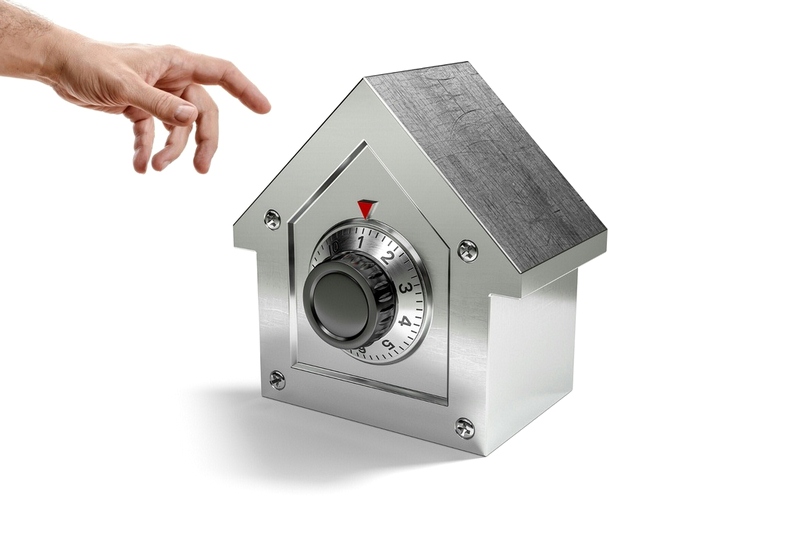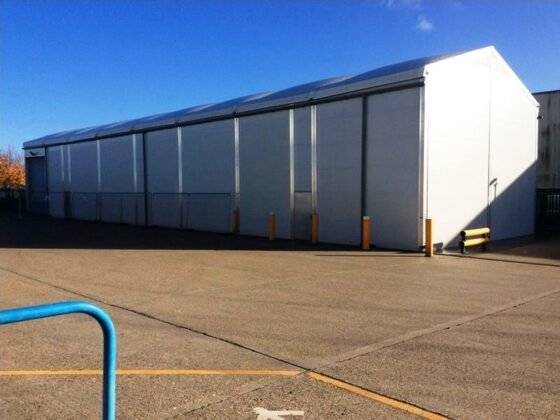Table of Contents Show
When it comes to choosing a home security system, you are presented with two options; either a wired or wireless system. Both have their advantages and disadvantages and it all depends on your specific application.
Hardwired systems have an edge in terms of overall reliability while wireless systems provide a modern solution for home security. You can install wireless systems in places where wired systems can’t, meaning that installation is easier and more streamlined.

A Wired or Wireless Home Security System, Which One is Better?
The network of sensors and how they communicate with the control panel is what makes a home security system wired or wireless. Wired security systems rely on landline connection while wireless systems make use of the cellular connection to communicate with the outside world.
Today we’ll be discussing the difference between a wired and wireless home security system to help you choose which one best suits your needs.
Read Also:
- Home Improvements You Need to Invest in to Improve Your Residential Security
- Advantages and Disadvantages of Professional and DIY Home Security Installation
- Few Tips for Getting the Best Products from Reputed CCTV Suppliers
- How to Make Your Home More Secure
- 10 Best Ways to Secure Your Home
- The Future of Your Home Security
Wired Security Systems
Wired security systems are a great choice if your home has already been prewired since it’ll be easy to install. Your home security provider will activate your system via a phone call a couple of updates to the control panel.
A hardwired security system works by connecting the sensors to the control panel with wires that are fully integrated within your home. It is then routed to the outside world by using your home’s telephone line.
If you wish to choose a different security provider, updating and installing the system is a very straightforward procedure. All it takes is programming a new number into the control panel.
Sometimes a converter may be necessary, but as long as the wiring itself is intact, all of the existing sensors should work with your new security provider’s equipment. After all, most hardwired systems make use of the same technology so there will be little to no compatibility issues.
One advantage of wired systems over their wireless counterparts is that they don’t require batteries to operate. You don’t have to worry about charging them to make sure your home is adequately protected which adds points to its reliability. It’s also much more affordable than wireless systems.
If you’re looking for an affordable way to add protection to your home, then a wired system is a good option. However, this can leave you vulnerable during a power outage. Professional thieves can also snip your telephone and power wires to quickly disable your security system prior to entering your property.
Wireless Security Systems
Wireless systems are the modern solution for home security. These address a couple of issues that wired systems present. You don’t have to worry about making modifications or drilling holes before installing the equipment. The sensors and cameras can be easily placed on hard-to-reach-areas, making it the perfect choice for not just households, but commercial businesses and establishments.
One advantage of wireless security systems is its portability. You can take your equipment wherever you go and install it if you decide to move to another home. Simply disconnect and reconnect your address and your home is protected instantly.
DIY wireless systems are also available so if you like to tinker around with sensors and equipment, this could be a good option for you. Wireless security systems can also function even in a power outage since it relies on battery power instead of your home’s electricity. Just make sure to keep it charged up so you don’t run out of battery in case a power outage occurs.
The major drawback of wireless security systems is its reliability. Since the sensors rely on a wireless connection, it is susceptible to interference that can cause it to fail or become unresponsive. Electromagnetic interference is one example where remote controls, fluorescent lighting, and microwave ovens can disrupt your wireless system’s connection.
Structural interference from your home’s walls and ceilings can also affect the sensors, but these issues are most infrequent. Weather can also interrupt the signals from each sensor to the control panel. This can result in false alarms sounding off or causing sensors to stop intermittently.
Wireless security systems are generally more expensive than wired security systems. But of course, it does come with more features. Most wireless systems come with home automation abilities which means you can remotely monitor and adjust your security settings right from your mobile device.
This gives you full control over your security system which is great if you’re mostly away from home. The more you invest, the more features you’ll have access to.
Combining Wired and Wireless Systems
A home security system can be both wired and wireless. For example, your security provider will use a wireless sensor network and pair it with a wired landline connection or they can set up wired sensors and connect the control panel to the outside world by using a cellular connection. You get the best of both worlds with the reliability of a wired system and the convenience of a wireless system.
The most common setup is where the telephone line (wired) serves as the primary connection while a cellular connection (wireless) serves as a backup in case the phone lines go down.
Most wired security systems are compatible with wireless equipment such as motion sensors, door sensors, and many more. This allows you to set up a basic wired system and add more security features in the future when your budget permits. But not all homes today have an active landline. If you do, this option is definitely worth considering.
Conclusion
Both wired and wireless security systems provide home protection for your property while you’re away. If you’re looking for a basic security system that’s reliable as they come, choose the wired option. If you want more features and overall convenience, go with the wireless system. Or, you can use both systems and integrate it to get the best of both worlds.
In the end, it all comes down to your specific needs. Make sure to weigh in the pros and cons of each security system so you can make the right choice.









